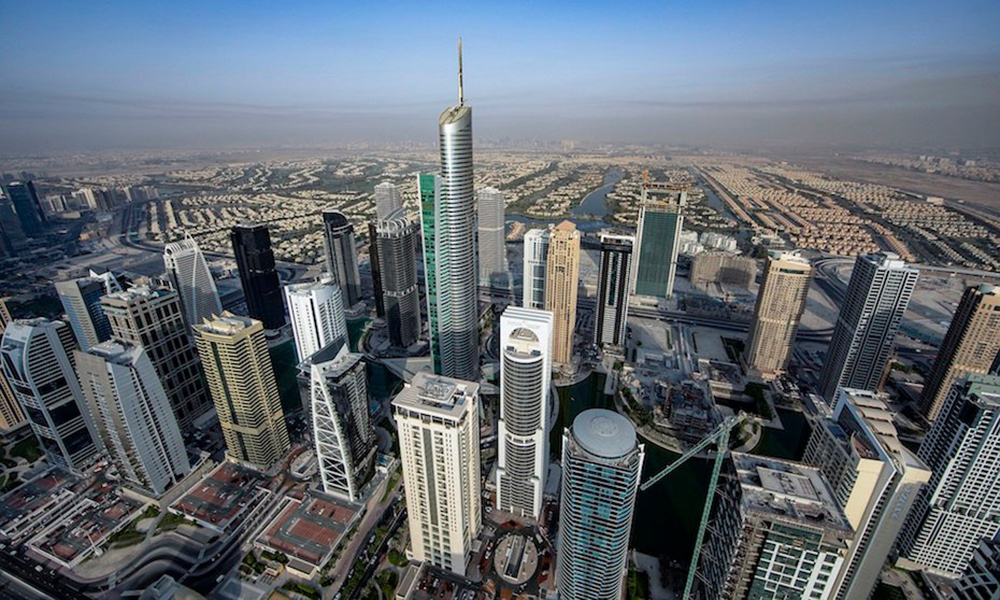DMCC has announced it will install solar car shades across the majority of Jumeirah Lake Towers (JLT) district’s car parking areas. Once the 6.3MW project is complete, JLT will be home to one of the UAE’s largest district solar car shade installations, the authority said.
The project will result in a significant reduction in power consumption tariffs for the district, generating savings each year for property owners, in turn making JLT more affordable for residents and tenants alike, the DMCC statement explained. DMCC said the project is being funded from the cost savings achieved by the energy generation, so there will be no additional cost to the JLT community.
The 20-year agreement for the project was signed as part of the Dubai Clean Energy and Net Zero Carbon Strategy 2050, which will provide 100% of Dubai’s total power capacity from clean energy sources. It also forms part of DMCC’s extensive sustainability strategy, which will see a reduction in the business district’s impact on the environment, with a particular emphasis on water and energy usage, the statement noted.
Work is set to commence in March 2022, with additional DMCC assets and other energy reduction initiatives set to join the scheme in the coming period, DMCC said.
“As seen at COP26, sustainability and decreasing carbon emissions are among the most critical issues that people and businesses face today. Sustainability is integrated into every level of DMCC, which is why we are proud to be driving Dubai’s decarbonisation efforts. Through initiatives such as this, we are able to deliver an enormously positive impact to the 100,000 people that live, work and enjoy the JLT district,” said DMCC chief operating officer Feryal Ahmadi.
The installation of solar panels across JLT is said to follow on from another solar car shade initiative at One JLT.
In addition to the solar project, a range of energy saving initiatives have been implemented over the past 12 months and have reduced consumption from the national energy grid by over 30%, noted Ahmadi.
Sustainability and other ESG issues are a core focus for DMCC. In August 2017, DMCC became the first freezone in the GCC to commit to the United Nations Global Compact (UNGC), encouraging responsible business practice throughout the entire value chain. As part of its commitment to the UNGC, DMCC publishes an annual sustainability report that highlight’s the business district’s progress on sustainability targets, concluded Ahmadi.



